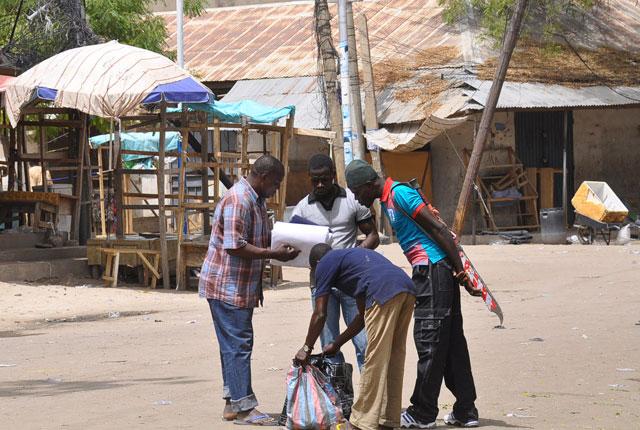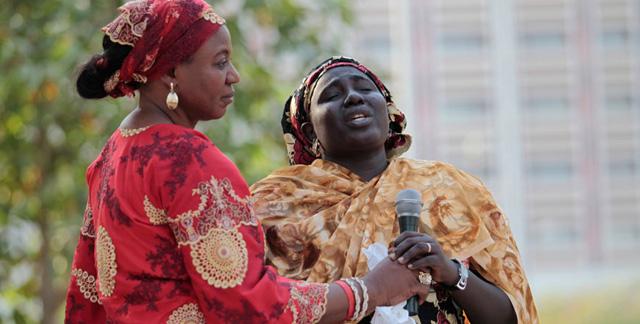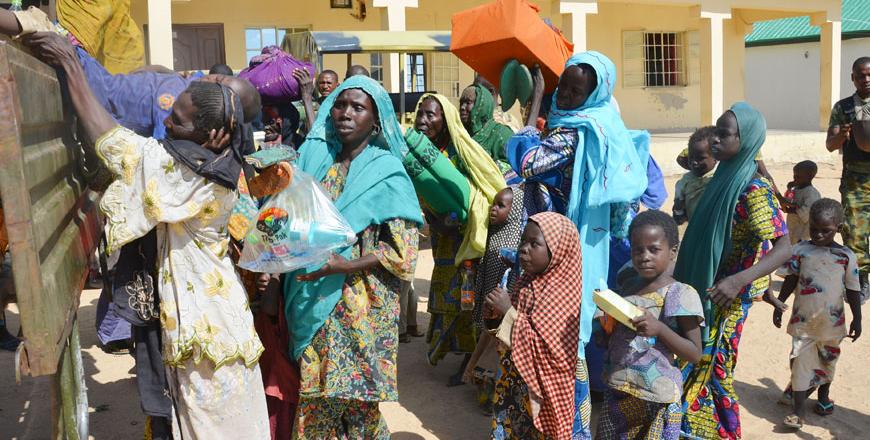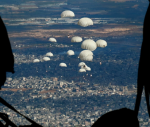You are here
Nigerian villagers describe horror of market bombing
By AFP - Aug 12,2015 - Last updated at Aug 12,2015

A woman carries bananas on a wooden tray on her head to sell during the traditional town cleansing procession at the start of the annual Osun festival in Osogbo in Nigeria’s southwest on Monday (Reuters photo)
Kano, Nigeria — Nigerian villagers on Wednesday described the carnage unleashed by a huge blast at a market in jihadist group Boko Haram's northeastern heartland as the death toll rose to 50.
The blast — caused by explosives concealed in a crop-spraying backpack — ripped through the weekly market in the village of Sabon Gari, around 135 kilometres south of Borno State capital Maiduguri, during peak trading on Tuesday.
The Nigerian military described the attack as a "suicide bombing" although no local authorities have confirmed this and witnesses said the bag had been "abandoned" before it exploded.
"When the blast happened, people in the market fled in fear. They abandoned their wares. Some managed to return for their wares but some never came back," Samaila Biu, a local trader, told AFP.
"The market was littered with all sorts of articles. The mobile phone section was a mess with many dead and pieces of flesh and blood splattered all over."
The explosion occurred around 1:15pm (1215 GMT), during the market's most busy trading hours when the area was packed with merchants and shoppers, Biu said.
In the immediate aftermath, officials said 47 people had been killed but upped the toll by three overnight.
"One more person died from his wounds and two more bodies were later brought to the morgue from near the scene of the blast. Now there are 50 dead and 51 injured," a nurse at Biu General Hospital, around 50 kilometres away, told AFP.
Yuram Bura, a member of a local vigilante group fighting Boko Haram alongside the army, said the two bodies recovered later had been found in bush land some distance from the market.
In shock
"We believe they managed to flee the scene with injuries from the explosion but died on the way," he told AFP.
Dozens of soldiers on Wednesday formed a security ring around the market, which was littered with footwear and clothing and still spattered with congealed blood.
They were also patrolling the nearby streets.
"The village is still in shock although most of the victims were from other places far and near, who came to attend the market," Bura said.
"The villagers can be seen in groups talking about the incident while soldiers and vigilantes remain on alert."
No one has claimed responsibility for the attack but witnesses said the blast bore the hallmarks of Boko Haram, which has previously targeted crowded bus stations, markets, mosques and churches during its bloody six-year insurgency.
"Those perpetrating these heinous crimes are callous, barbaric and monsters whose activities will soon become a thing of the past," armed forces spokesman Colonel Rabe Abubakar said in a statement.
"The military is intensifying efforts to continue to break the bones of the terrorists and wishes to restate and reassure Nigerians that it is not relenting in its efforts to rid the country of terrorism and any act of criminalities."
'Senseless brutality'
Washington condemned the attack and said it would continue to provide "a range of counterterrorism assistance to help Nigeria and its regional partners".
"We will continue to work closely with the Nigerian government and our international partners to combat Boko Haram and assist the many victims of its senseless brutality," State Department spokesman John Kirby said in a statement.
Boko Haram has killed more than 15,000 people since 2009, increasing the frequency and intensity of its attacks since President Muhammadu Buhari took the helm on May 29.
Ryan Cummings, chief security analyst at South African consultancy Red 24, said the attack demonstrated the "reversion of Boko Haram to a traditional asymmetric warfare".
"By conducting sporadic attacks targeting civilian interests across much of Nigeria, Boko Haram has created the demoralising perception that it is a threat which is omnipresent, capable of inflicting harm on Nigerians in any given place at any given time," he told AFP.
Cummings said such acts of mass violence helped over-inflate the public perception of the jihadist group's strength, while undermining the legitimacy of the government as a guarantor of security.
"By conducting attacks outside of its primary strongholds, particularly when targeting urban locales, Boko Haram is effectively absorbing and occupying security resources which could otherwise have been used to counter the group in its operational strongholds," he added.
Related Articles
Bomb blasts killed at least 50 people in Maiduguri in Nigeria's northeast on Saturday in the worst attacks there since Islamist militants tried to seize the city in two major assaults earlier this year.
Suspected Boko Haram militants have seized a military base in northeastern Nigeria in a series of blistering raids near Lake Chad, sending soldiers and civilians fleeing, witnesses said on Sunday.
Maiduguri — Nigeria's military said Monday it had "besieged" Boko Haram positions in the Islamist militant group's northeastern heartland af


















